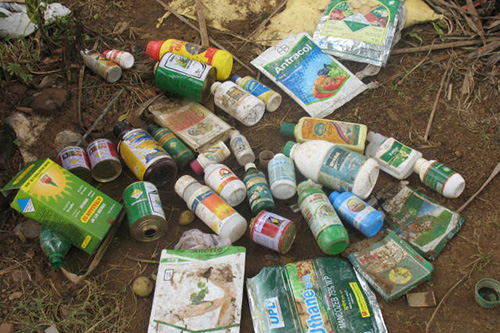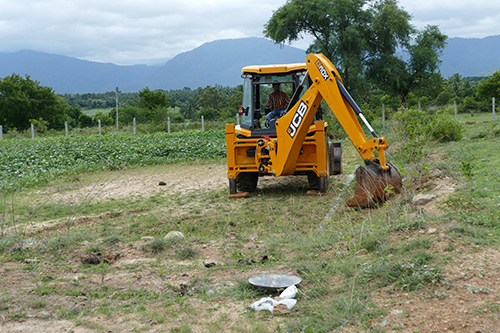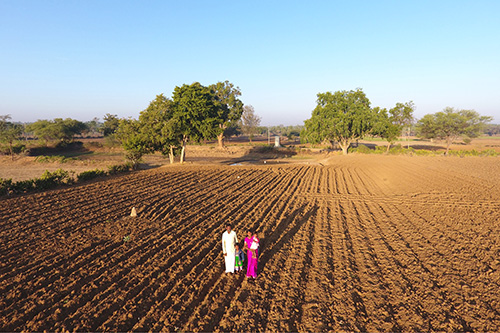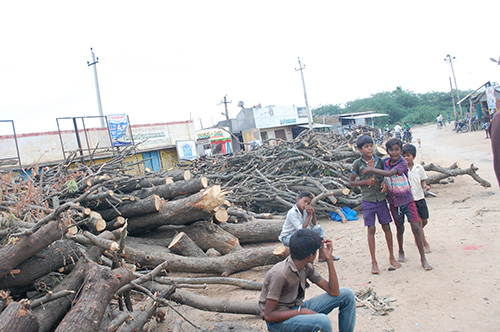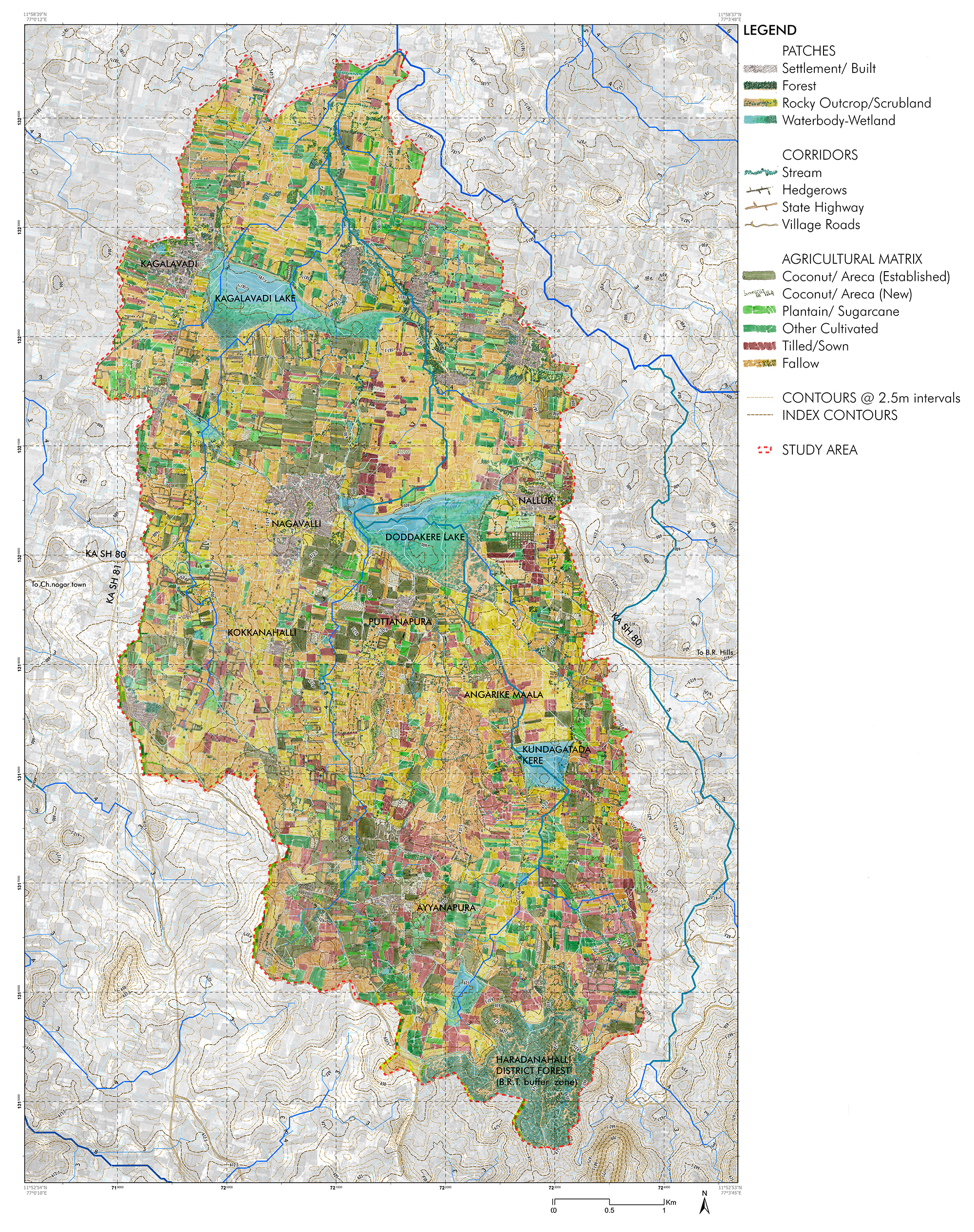Research and advocacy on climate emergency
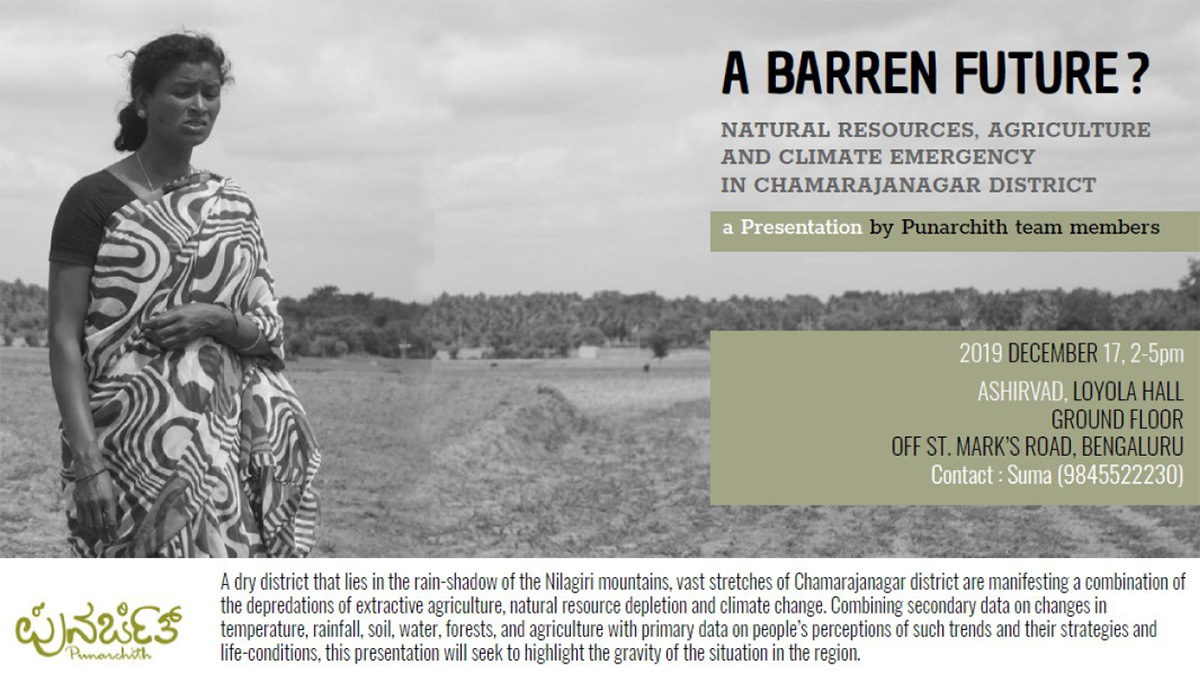
2023
MAPPING THE NAGAVALLI WATERSHED
Sindhuja Sarasram conducted a study and developed her thesis on “‘CLIMATE-CHANGE ADAPTATION FOR AT-RISK DRYLAND RURAL LANDSCAPES THROUGH LANDSCAPE MANAGEMENT STRATEGIES: A Case of Nagavalli Village Environs, Chamarajanagar, Karnataka’ Masters in Landscape Graduation Project (2023), under the guidance of Saurabh Popli, School of Planning and Architecture, Bhopal.
This project looks at climate-change adaptation at the marginal farm scale through good farming practices and strategies for ‘Landscape Health’. Details from this study include the impact of human activities and its intertwining with climate change to degrade agricultural and rural landscapes. Details from this study will be drawn on to develop out-reach and awareness activities for the residents of Nagavalli and for training local youth as ‘climate change catalysts’.
2022
2021-22
This programme is a continuation of the work initiated in 2018 and the focus is on facilitating out-reach and awareness workshops/engagements on climate change with people in the district. Since the past year, we’ve been engrossed in several activities ranging from continuing the research and out-reach, to reconceptualising the presentation on climate change for various audiences. Overall, much to our disappointment, the gravity of the situation caused by climate change is not an issue that finds acceptance among rural citizens, elected representatives or with the government administrators. Our key learning has been that despite the onset of several climate adversities, the emphasis on continuing life as before and the focus on livelihood activities that will bring remunerative incomes takes precedence over preparing for climate change mitigation or resilience. We have much more to do and need to think of multiple strategies.
Several versions (made for different audiences) of a detailed presentation on climate change in the district have been made. Some of them are bilingual (English and Kannada) but many are in Kannada. Some of the data has been used to present the ‘infographics’ in the climate change video.
A WhatsApp Group called ‘HasiruAvarana’ or ‘Green Environment’: Chamarajanagar Environment and Climate Action Group was made and it currently has 52 members on it. The response and engagement via this WA group has been limited and only a few sent in comments or queries. The short video has also been released on this WhatsApp group.
Street Play on Climate Change:
At our request, Mr. Berty Olivera (originally from the district) developed a street play on climate change which focused on the issues and trends (chemical agriculture, neglect of public natural resources, the indifference of youth to rural issues, the challenges of climate change related to adverse natural events etc) in the local dialect and included several songs. The play (‘Times have Changed’) was performed by Mr. Shantharaj and his team of actors. 14 performances of the street play were made in 11 villages in the district. The response was good but very few opted to sign up for further discussions or engage with us on a long-term basis.
FARMERS’ VIEWS ON CLIMATE CHANGE’: 2019
Complementing the secondary data we have conducted interviews with local farmers to understand their own constructions and impressions about climate change, the strategies that they are deploying and their life conditions. In 2019, we presented this study to several audiences including farmers, district administration, the Rotary Club, Indian Institute of Science, and to an audience of civil society members at Bengaluru. A short film has been made and infographics to disseminate the information to a broader audience are being designed. Plans are to share this data and its analyses with a range of administrators, elected representatives, and with the larger farming community. The presentations, now in both English and Kannada, will be used to create awareness and to prepare the local people to develop climate resilient agricultural practices and to enhance the overall natural resource base in the region.
